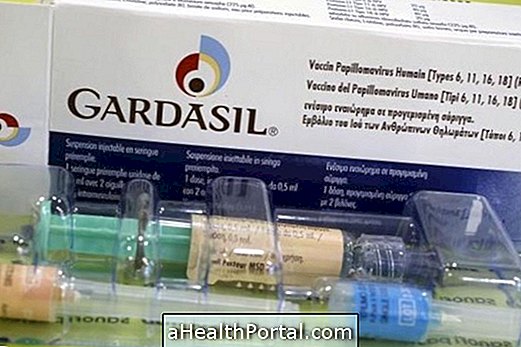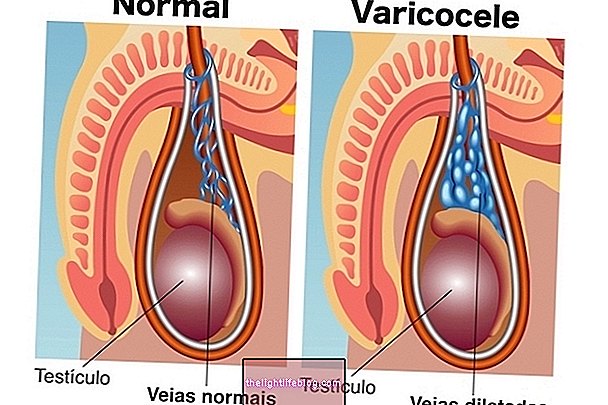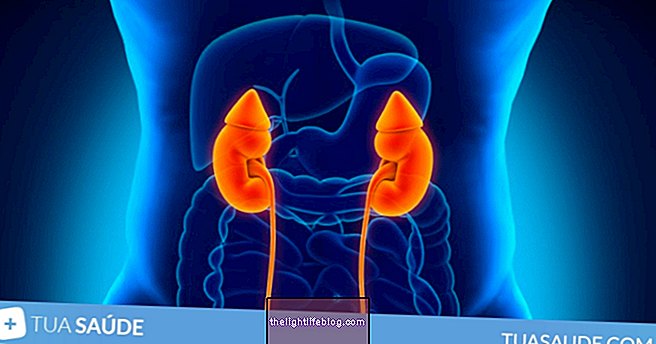The inflammation in the vocal cords can be caused can have several causes, however all are results of the vocal abuse, being thus very common in singers, for example. The vocal cords are responsible for the emission of sounds and are located inside the larynx. In this way, any change in the larynx can affect the vocal chords and, consequently, the voice.
The inflamed vocal cords can be noticed when the person has throat pain, hoarseness or altered tone of voice, and from that moment on he should save his voice and drink enough water to keep his throat moist. Treatment can be done with the help of a speech therapist, who depending on the cause and symptoms will define the best way to treat inflammation.

Main causes
The inflammation in the vocal cords can have several causes, for example:
- Callus Callus - Learn how to identify and treat callus on vocal cords;
- Polyp in the vocal cords;
- Gastroesophageal reflux;
- Laryngitis;
- Excess alcohol and cigarette.
In addition to these causes, inflammation in the vocal chords may occur because of the presence of cyst or tumor in the vocal chords or larynx, but this is rarer. Typically, people who have the voice as the main working tool, such as singers and teachers, tend to have inflamed vocal cords more often.
Symptoms of inflamed vocal cords
Symptoms of inflamed vocal cords usually include:
- Hoarseness;
- Low voice or loss of voice;
- Sore throat;
- Difficulty speaking;
- Change in tone of voice, which may make it difficult for speakers and singers to work;
- Paralysis of the vocal cords.
The diagnosis of inflammation in the vocal cords can be made by the general practitioner or otorhinolaryngologist through the observation of the symptoms presented and can be confirmed through examinations that allow the visualization of vocal chords such as mirrors or high endoscopy.
How is the treatment done?
Treatment for inflamed vocal cords varies according to the severity of the disease. In some cases it may be advised that the person avoid talking, sparing their voice to the fullest, and drink plenty of water to keep the throat properly hydrated. However, a speech therapist may be required to perform a series of exercises that may aid in voice recovery.
What can be done to relieve discomfort and assist in the treatment of inflamed vocal cords is:
- To save the voice to the maximum, avoiding to speak or to sing;
- Whisper whenever possible to communicate;
- Take at least 2.5 liters of water per day to keep the entire throat area hydrated;
- Avoid very hot or too cold foods to spare your throat.
When inflammation in the vocal cords is caused by more serious diseases such as cysts or cancer, the doctor may indicate other treatments that may include medicine or surgery.
Homemade Option
The home treatment is simple and aims to relieve symptoms, especially hoarseness and sore throat. A good choice is the gargle of lemon with pepper and the syrup of ginger and propolis. Learn about these and other home treatment recipes here.






















